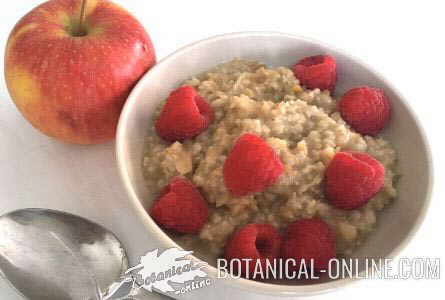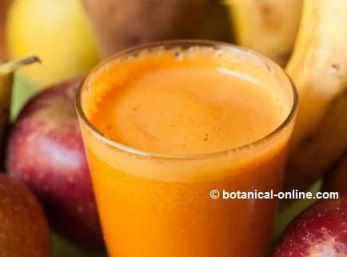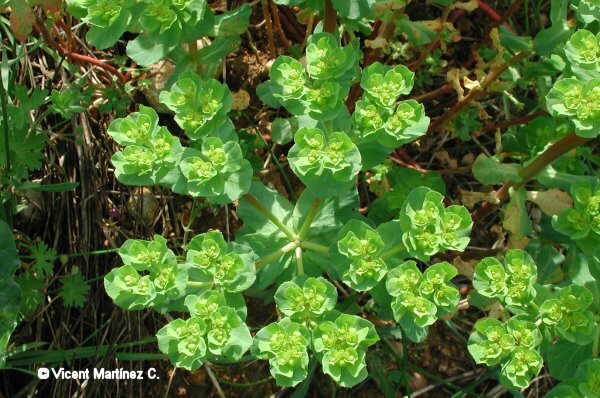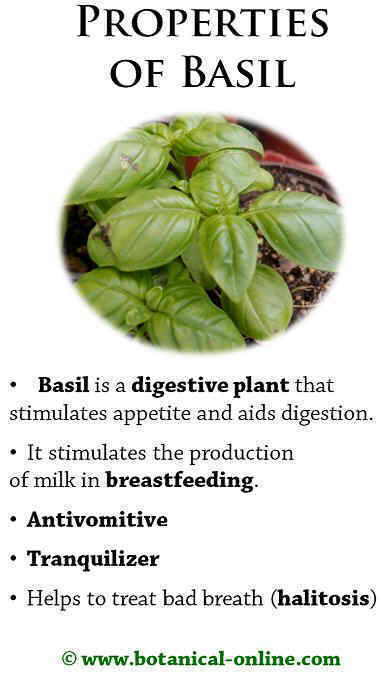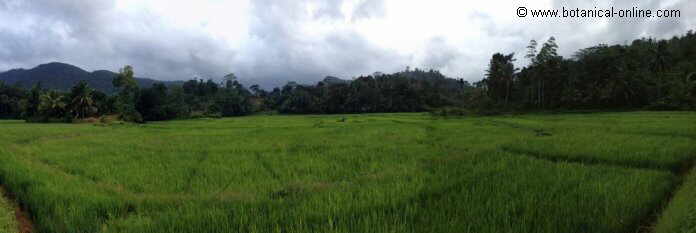Contents
- 1 Characteristics of oats for babies and children
- 2 Children advantages and disadvantages of eating oats
- 3 What is the difference between oats and rice?
- 4 Are oats adequate for babies?
- 5 When can oatmeal be introduced?
- 6 Are oats adequate for young children?
- 7 Oats for babies with constipation
- 8 What remedies are best suited for constipated babies?
- 9 Oats for children: How to introduce oats to children?
- 10 Oatmeal for children with obesity or diabetes
- 11 What children are recommended to take oatmeal?
Characteristics of oats for babies and children
Oats (Avena sativa) is a cereal of the same family as rice, wheat or corn. Oats can be purchased in different presentations: as whole cereal, oatmeal flakes, muesli, oat bran and oat milk.
Children advantages and disadvantages of eating oats
- Oatmeal is very rich in fiber: It should be borne in mind that oatmeal can be an indigestible cereal for babies and young children since it contains 10 times more fiber than rice.
- Provides slow-absorbing carbohydrates: Oats have a high nutritional value because it provides very healthy energy from carbohydrates. It is also very complete at the level of proteins, vitamins and minerals.
- Theoretically, oatmeal does not contain gluten, but all products with oats are contraindicated for people with celiac disease, because oats are handled together with cereals that contain gluten.
- Primarily, oatmeal is a food that should be given with caution to infants and young children, because its composition is very different from other lighter cereals such as refined rice.
- “Fine” oat flakes, cooked, are recommended because they are more digestive.
- It is not recommended to give bran or whole oat flakes since they contain too much fiber and antinutrients.
What is the difference between oats and rice?
The difference between oat flakes and rice is shown in the following tables:
| Nutritional composition of oat flakes per 100g. | Nutritional composition of raw rice per 100g. |
| Energy: 372 kcal.Carbohydrates: 59 g Fat: 7 g. Proteins: 14 g. Fiber: 10g. (very high) | Energy: 365 kcal. Carbohydrates: 80 g. Fat: 1 g. Proteins: 7 g. Fiber: 1 g. |
Are oats adequate for babies?
No, oats are not suitable for babies. The baby’s digestive system is immature for the high fiber content that oats contain. For this reason, flakes and oat bran are contraindicated for very young babies.
When can oatmeal be introduced?
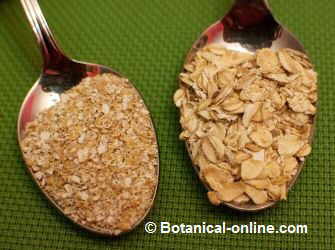
Oat bran (left) and oat flakes (right)
Theoretically, the introduction of whole grain and oat milk can be made after 8 months, which is when the other cereals with gluten are introduced. This precaution is done because, to introduce gluten at earlier ages, can produce allergy reactions.
However, recent studies say that gluten can be introduced much earlier and that there is no reason to delay the introduction of cereals since it does not decrease the risk of allergy. Therefore, oats can be given to the child at 6-7 months, or when normal feeding begins.
* Related information: Introduction table of foods to babies
Are oats adequate for young children?
In young children you can incorporate oats, as a cereal, inside the porridge although taking into account that it is a fibrous food, it should be given in small quantities and progressively increased. Oat drink enriched with calcium is recommended.
Oats for babies with constipation
The remedies against constipation with oats can be very indigestible for the baby, due to the high fiber content of oats. The type of fiber that contains oats is soluble (beta-glucans) and insoluble (celluloses). An excess of insoluble fiber can be very irritating to the digestive system (both baby and adult). Colic, bloating and intestinal discomfort may occur in the baby.
What remedies are best suited for constipated babies?
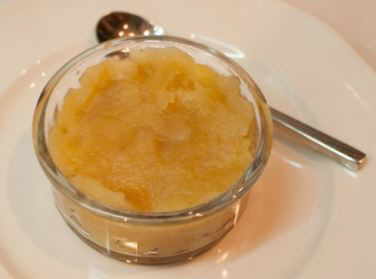
Applesauce
For infants and children with constipation, it is recommended to use less strong natural laxatives, such as hydrated dried plums, hydrated raisins, kiwi, apple compote, homemade agar agar gelatins with fruit juice, and to drink bifidus yogurt. Always in small quantity and progressively increasing, only if necessary.
- Caution should be exercised with the amount of fiber given to infants and children, starting with small amounts.
Above all, it is important to hydrate the previous foods (plums, raisins, etc.) and accompany the fiber-rich foods with plenty of water, so that the fiber hydrates and exerts its effect. Take a lot of fiber and not give water could produce plugs or intestinal occlusions!
Oats for children: How to introduce oats to children?
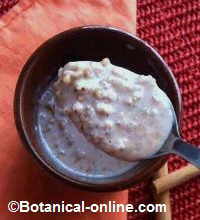
Porridge. Oats provide a high nutritional value because it is very rich in proteins, carbohydrates, healthy fats, fiber, vitamins and minerals.
Oatmeal flakes should be given in very small quantities and well cooked, never dry or only hydrated. For this, the flakes will be hydrated for at least 1 hour, or overnight, and cooked with milk or vegetable drink to soften them. This preparation is known as porridge.
From about 2-3 years old, when the child eats all the food, all oat products such as cookies, etc. can be introduced. in the usual diet.
Oatmeal flakes and oat bran (fiber supplement) are very rich in fiber and should be given in balanced rations (the dose of fiber a child needs is much less than that of an adult).
Oatmeal for children with obesity or diabetes
When children grow, oats become a very nutritious food ideal for their food because it will provide a lot of energy for their growth. It is convenient to know, for example, that breakfast cereals are not healthy and that it is much better not to give them to any child, whether obese or not. Instead, offering oatmeal can be highly recommended.
What children are recommended to take oatmeal?
Oatmeal is especially recommended for children with:
- History of diabetes or obesity in the family: Accustoming children to take oats will help them consume it on a regular basis. Eating oatmeal daily prevents against obesity, diabetes and other diseases.
- Family history of cholesterol, constipation or colon cancer: The high fiber content of oats helps prevent these diseases. Children daily consumption is a protective factor.
- Children with constipation: Take flakes or oat bran with plenty of water. Muesli is recommended. If there is chronic constipation, it is appropriate to consume bifidus yogurt daily.
- Children with obesity: It is a very nutritious and satisfying food, which will prevent them from pecking between meals. It is recommended that the whole family consume the same foods so that the child accepts them better. It can be introduced in yoghurts, salads, smoothies, vegetable creams, etc.
Oats are not recommended when there are some type of intestinal diseases !!!
![]() More information on oats.
More information on oats.

